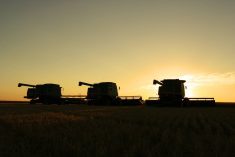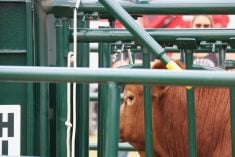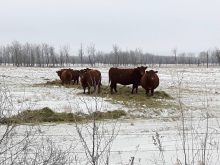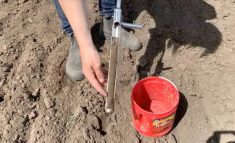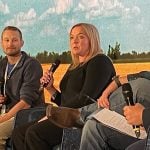Imagine your favourite ag dealer decided to start favouring people wearing red sweaters. You, not knowing any of this, walk in wearing your favourite blue sweater. Aghast at the poor level of service you received and at the sheer silliness of the policy, you demand to speak to the manager, who is too busy helping people with red sweaters to take your complaint. The scenario is ridiculous, right? It is, but it’s also one that routinely plays out in agriculture and elsewhere.
Some of the topics I am about to share with you rattle my core. I wrestle with them. I attempt to put them in chokeholds or otherwise subdue them, so they don’t interfere with my life and prevent me from advancing through a workday.
What I am about to say may elicit a strong reaction. It may turn you off from continuing to read. But, and I am pleading here, please continue to the end. Privilege. Have you heard of the word? You likely have. And you likely have some thoughts about it. Fair enough. I do, too.
Read Also

Avoid these thought traps when investing
Investing for Fun and Profit: Let’s review a list, by renowned fund manager Peter Lynch, of the most dangerous things that stock market investors can say to themselves, or to others.
I am privileged. I am a white male taking over an established farming business. My journalism and writing experiences have allowed me to seamlessly transition to agricultural communications, and I have become a sought-after commodity in that arena.
Do I deserve my success? Yes and no. My wife would say that my success is my charm. I am busier than there is time in a day. Details get forgotten. Accounts billable and accounts payable are rarely current. I’ll finish jobs and complete tasks, but I will rely on the organizational skills of others in order to do so.
Privilege, as I have come to understand it, is me having and using a set of unearned characteristics that give me prejudicial advantage over others, allowing me to be dismissive about the things in my life that I know I need to improve while simultaneously resting assured that those shortcomings will get picked up by others.
Privilege is also getting away with things others wouldn’t and believing that the rules can bend in your direction because “I’m a good person.”
The farming community needs to understand this. So many of us come from tremendous privilege. I could not imagine starting a farm from scratch. My ability to balance the books and run a small farming operation doesn’t hold a candle to the challenges of someone who, because of the colour of their skin, gender, socio-economic status or sexual orientation has had to fight, tooth and nail, to get just a modicum of the attention I can get on any given day.
I am a farmer and a writer. This set of qualifications has taken me quite far. I am grateful. I love it. I really do. But, I am not the only good farmer and writer/communicator. I have and still do work alongside many women, who also share the traits of being both communicators and farmers. My charisma and charm — if I have any at all — is absolutely no match for the skill, patience and capacity I have witnessed in many people, who do not get the opportunities I get.
I have wanted to write about this for quite some time, but I held back because I didn’t have a solution and I would get tripped up trying to reconcile the optics of me, a man of privilege, writing about women and writing about privilege from a place of privilege. I would like to believe that my words here don’t have value because I am a man, but instead because I have an audience in this newspaper.
I also hesitated to share this because what good would it do telling you all of this without some sort of path forward.
I was chatting about this with a colleague of mine. I expressed to her my frustration over realizing just how privileged I am and not knowing what to do about it. She said two words to me and they stuck: “Be better.”
Those words were the solution. I need to be better. When I heard those words and when they finally sunk in, I knew exactly how and where I needed to be better. It’ll be different for you. I know I am privileged, and I know it’s largely for things that, by themselves, have no intrinsic value. I need to stop assuming I have an advantage. I need to be more grateful to those who pick up the pieces around me and I need to develop better tools to communicate in advance with those whose skills complement my deficits.
This analogy could apply to the sector, as a whole, but I think it has more impact on an individual level. If I happen to be wearing a red sweater, it is my hope that when I get fast-tracked to the start of the line, I’ll know that it’s prejudicial, baseless and in no way makes me better than those whose sweaters happen to be a different colour.



